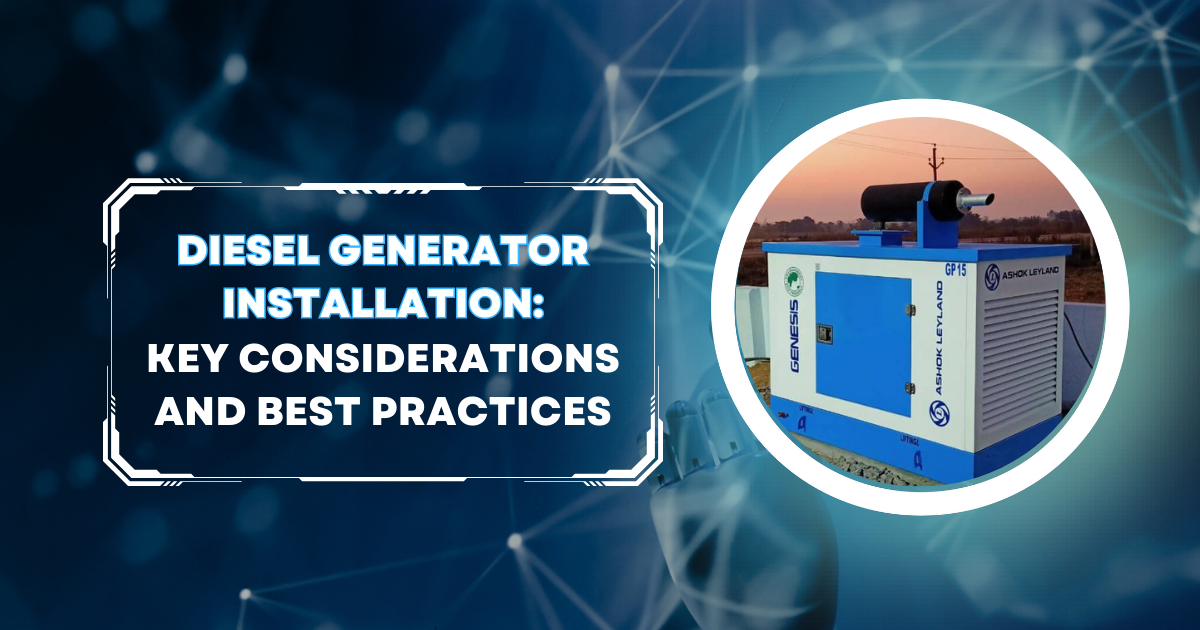Company Address
A-46, Madhura Nagar, Hyderabad
Genesis stands out because we don’t just have experience but we observe, learn and bring in the necessary changes as and when required. We also put our customers over everything else as they are and will always be our top priority. We do not compromise in the quality of the gensets as we manufacture using the best quality machines and hence, you can count on us.
A-46,Madhura Nagar,
Hyderabad, Telangana 500038
Phone : +91 90006 88888
info@genesisinfra.com
sales@genesisinfra.com

Are you tired of being without power during outages? Well, fret no more! In this electrifying blog post, we'll delve into the exciting world of diesel generator installation. Whether you're a superhero preparing for an epic battle against blackouts or simply seeking a reliable backup power source, we've got you covered. Join us as we explore the key considerations and best practices for a successful diesel generator installation. From site selection to electrical requirements, we'll spark your curiosity and enlighten you on everything you need to know. Get ready to ignite your knowledge and power up with these electrifying insights!
The first step in diesel generator installation is selecting an appropriate site. Consider the following factors:
Proper ventilation is critical for diesel generator installations to prevent overheating and ensure safe operation. Consider these factors:
Understanding the electrical requirements is crucial for a successful diesel generator installation. Consider the following:
Ensure compliance with local building codes and regulations throughout the installation process. This includes adherence to setback distances, noise restrictions, fuel storage regulations, and emission control requirements. Consulting with professionals experienced in local codes and regulations is essential to avoid costly penalties and ensure a safe and compliant installation.
Installing a diesel generator requires careful consideration of site selection, space requirements, ventilation, adherence to building codes, environmental considerations, and electrical requirements. Following these key considerations and best practices will help you create a reliable and compliant backup power solution. Remember to consult with professionals and experts to address specific requirements and regulations for your installation project.
And speaking of knowledgeable installers and generator suppliers, Genesis gives you the convenience of finding both under one roof. We are one of the most well-known manufacturers and providers of power gensets of various varieties, equally effective for both domestic and industrial power needs. To visit our website, click here: genesisinfra.com
Developed with by
Avantech Web Grid




Comments (0)